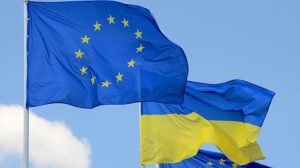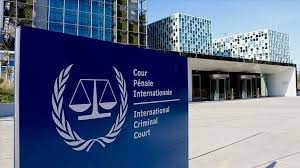
Alexey Blinov, head of the analytical department at Alfa-Bank, expects the stabilization of the hryvnia card rate for individuals in June and the preservation of the rates of exporters and importers.
“For June, we can predict the preservation of the rates of exporters and importers. As for the bank cash market for individuals, it has more or less stabilized and I don’t think that there will be such jumps that we saw this spring,” he said during the Finclub round table on Tuesday .
His opinion was shared by associate expert of “CASE Ukraine”, ex-deputy director of the financial stability department of the National Bank of Ukraine (NBU) Yevhen Dubogryz, who also noted the stabilization of the exchange rate compared to the jumps observed in the spring.
“It seems to me that we will have a creeping devaluation. Even if the NBU weighs this, there is still pressure on the hryvnia, since we have a war, problems with exports, with the fact that we do not receive the amount of funds from our partners, which we are very necessary,” the expert said.
He noted the existence of a small issue of the hryvnia, which affects inflation not directly, but through inflationary expectations.
“Over time, the NBU will change the course, of course, in the direction of the dollar’s rise in price,” Dubogryz pointed out.
As reported, on February 24, the National Bank suspended the work of the foreign exchange market of Ukraine, except for the sale of foreign currency, and fixed the exchange rate at the official level of that day – UAH 29.2549/$1, which led to the emergence of a “black” market, where in the first days the exchange rate reached 39-40 UAH/$1.
Later, the regulator allowed the sale of currency in branches under the threat of capture by the occupiers, by decision of their management, and from May 21, it canceled the upper limit of both the rate of selling cash currency by banks in Ukraine and the rate of converting the hryvnia into foreign currency on their cards outside the country. Previously, the ceiling for such an exchange rate was the official hryvnia exchange rate fixed on the first day of the war plus 10%, or UAH 32.18/$1. The ceiling for other currencies was calculated at the cross rate against the dollar.

Prime Minister Denys Shmyhal says that Ukraine expects to join the common customs area with the European Union within a month.
“We are grateful for the provision by Slovakia of extremely needed military assistance and for humanitarian assistance, which covers almost all areas,” Shmyhal was quoted by the government press service as a result of a meeting in Kyiv with President of the Slovak Republic Zuzana Chaputova on Tuesday.
The Prime Minister noted that Ukraine expects to become a full member of the European family.
“Slovakia is one of the largest advocates of Ukraine in the European Union. We appreciate the initiative to unite with our friends to advance the granting of Ukraine the status of an EU candidate. We are grateful for such support,” he said.
The Prime Minister stressed that Ukraine has fulfilled more than 70% of the Association Agreement with the EU.
“We have an ambitious goal of joining the NCTS, the Common Customs Space, within a month. We are ready for all challenges and Denis Shmigal is ready.
Chaputova, for her part, noted that Slovakia had a recent experience of integration into the EU and her country would support Ukraine on this path.

International Criminal Court (ICC) Prosecutor Karim Khan intends to open an office in Ukraine to investigate crimes committed during the war waged by Russia against Ukraine.
He announced this on Tuesday in The Hague at a press conference. “We can’t fly in and out. In the next few weeks we will be working on opening an office in Kyiv. We have already seen it, we have very good cooperation with the Prosecutor General. I think this is very important,” the ICC prosecutor said.
He recalled that on May 17, the largest number of experts, employees of the Office and specialists from the Netherlands was sent to Ukraine in the history of the existence of the Office of the ICC Prosecutor. “I hope that we can work with the Prosecutor General’s Office of Ukraine, providing support to Ukraine, which has the initial responsibility to conduct an independent investigation against the perpetrators,” Khan added.
The prosecutor also noted that in addition to the six countries that are members of the Joint Investigation Team (Poland, Lithuania, Latvia, Estonia, Slovakia, Ukraine), there are 13 other states that “conduct structural investigations, and I welcome this.” “We have to go deeper, use technology, artificial intelligence, Clouds, use different tools not only to put judges with reliable cases, but that we can provide irrefutable evidence to national authorities so that they can use their legislation. We cannot tolerate the crimes that we see in Ukraine,” Khan stressed.

Ukrainian Universal Exchange LLC (UUB, Poltava) sold almost 500 thousand cubic meters during trading in May 2022. m of wood and lumber, which exceeds the total revenue for two months – January and February.
Serhiy Gladkiy Gladkiy, director of UUB, spoke about the rapid restoration of exchange trading in raw wood and sawn timber in the conditions of the Russian military invasion of Ukraine in an exclusive interview with the Interfax-Ukraine agency.
He recalled that on the day of the full-scale Russian invasion on February 24, the previous electronic trading system, leased by the organization at that time, stopped its work. Due to its sudden outage, UUB was forced to cancel and annul the results of some trading in the first three weeks of the war, as well as accelerate the launch of its own trading system, which was being developed by the exchange, which was able to start working on April 19.
“We were able to launch our system from April 19, and by the end of the month, our state forestry enterprises had earned UAH 144 million and sold 48,000 cubic meters of wood. This is a good indicator, taking into account that part of the regions is under temporary occupation. In our auction in April took over a thousand participants. So we got out of the situation: we used all our resources, came up with our own system and resumed the market,” Gladkiy said.
He stressed that already in May the volume of exchange trade in wood and sawn timber increased almost tenfold compared to the second half of April – in May, state forestry enterprises sold almost 500 thousand cubic meters at UUB. m of wood and lumber.
“This is even more than the pre-war volumes of February and January combined, so the market is recovering quickly,” Gladky said.
UUB was founded in 1997 and operates in the areas of public procurement (ProZorro, tender.uub.com.ua platform) and the sale of state and municipal property (Prozorro.Sales, sale.uub.com.ua platform).
On the exchange site, auction participants can acquire rights of claim under loan agreements, the right to lease freight cars, residential and non-residential real estate, scrap metal, vehicles and other fixed assets. Also, the activities of the exchange are the sale of property of bankrupt enterprises, forward contracts for the purchase of real estate, land and raw wood.
In December 2021, the exchange became the leader in the country in sales of raw wood, having sold 614 thousand cubic meters of this exchange commodity for UAH 1.67 billion in a month.

In 2021, Ukrainian startups attracted venture investments in 216 transactions for a record amount of $779.6 million, which is 46% more than in 2020, these are the results of the annual study Ukraine Deal Review 2021, conducted by the Ukrainian Association of Venture and Private Capital UVCA in partnership with Kreston Ukraine, AVentures and ISE Corporate Accelerator.
“For the first time I will say this figure – $2.8 billion over 8 years, of which $780 million last year was a total investment in the Ukrainian ecosystem, which was invested by foreigners,” Andriy Kolodyuk, head of the UVCA Supervisory Board, commented on these results to Interfax-Ukraine. .
As in the previous period, about half of the deals (47%) came from the Ukrainian Startup Fund (USF). Investments attributed to private equity amounted to $82.8 million, while only agreements with a declared amount were calculated.
UVCA added that in 2021 the Ukrainian venture capital market was replenished with six new players: GEEK Ventures, SID Venture Partners, ZAS Ventures, ANCHOR, PAWA. They offer Ukrainian startups financing at the level of $0.5 million, as well as their experience and expertise. In addition, last year 19 large international companies opened their R&D centers, offices and engineering hubs in Ukraine.
“But the most important thing that happened in the first quarter of 2022 was 11 transactions and 8 exits. It is very important for the ecosystem that transactions continue. Despite large-scale Russian aggression, the development of private technology investment markets has not stopped,” Kolodyuk emphasized.
According to the report, according to the results of January-March 2022, 11 venture agreements were concluded for the amount of $11.5 million, three transactions in the private capital market for the amount of $4 million, and eight exits were made for the amount of $135 million. Over the past year, UVCA estimated the total cost of the exit at $944 .7 million
According to the study, the total valuation of Ukrainian startups before the war was $20.7 billion.

The Verkhovna Rada adopted in the first reading bill No. 6485 on creating conditions for comprehensive thermal modernization of buildings, MP Ivan Yunakov (Servant of the People faction) said.
“We considered this bill at the committee on February 23 … We will prepare for the second reading, taking into account the conditions and challenges that the country faced the next day,” the people’s deputy wrote on Facebook on Tuesday.
According to the explanatory note to the bill, the document will remove a number of legislative obstacles to the implementation of thermal modernization projects, including in the case of state support.
The bill amends the law “On the Energy Efficiency Fund” in terms of the procedure for developing, reviewing and accepting applications, implementing and verifying projects.
The draft law will also simplify the implementation of partial thermal modernization projects by reducing the number of procedures, as well as introducing clear criteria in terms of energy efficiency indicators for such projects.
In addition, the procedure for the creation and functioning of associations of co-owners of an apartment building (OSMD) will be simplified.